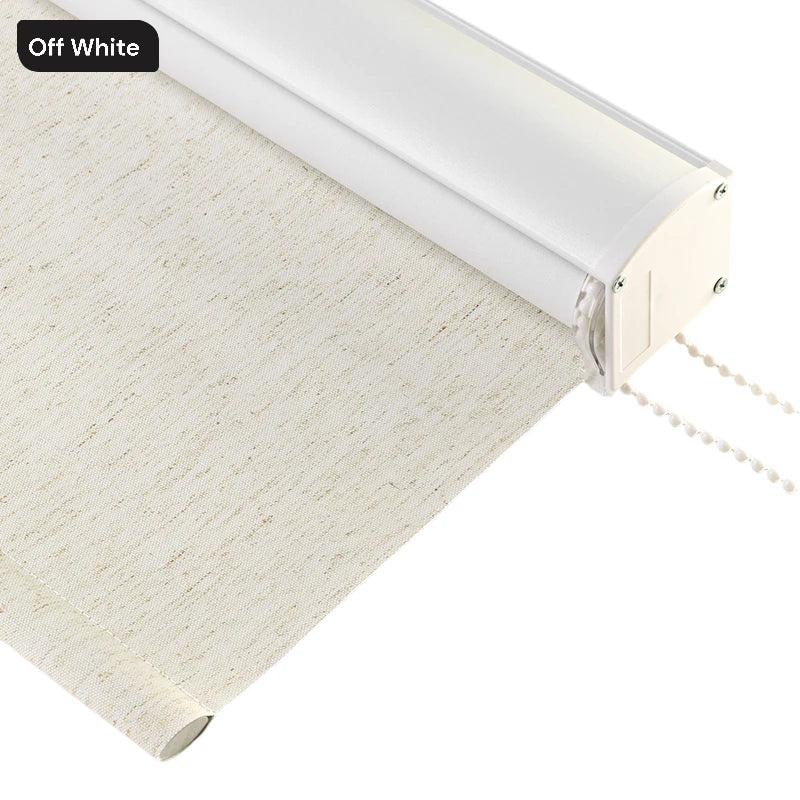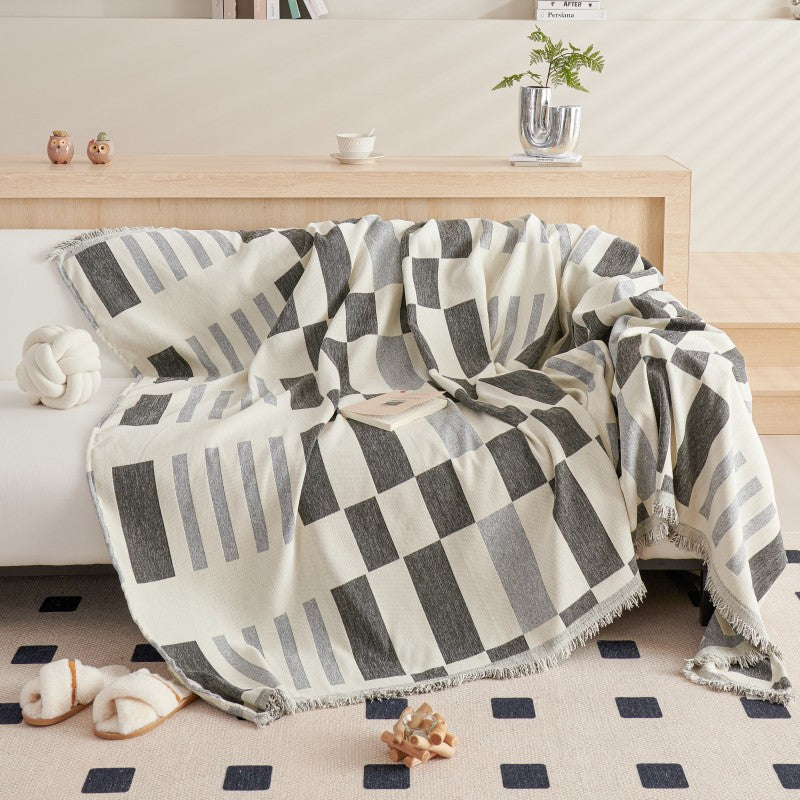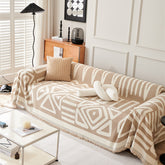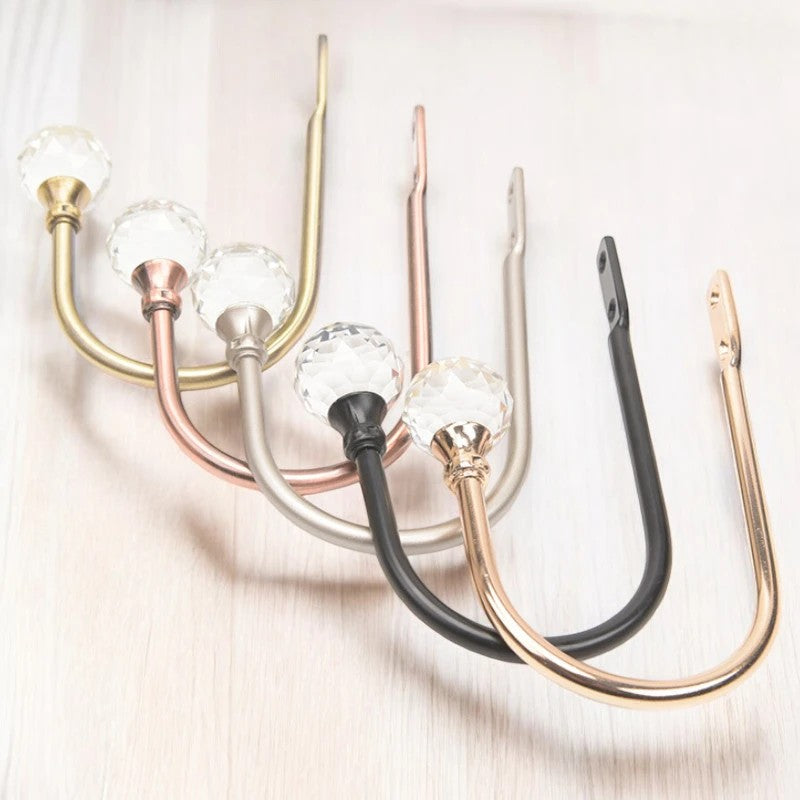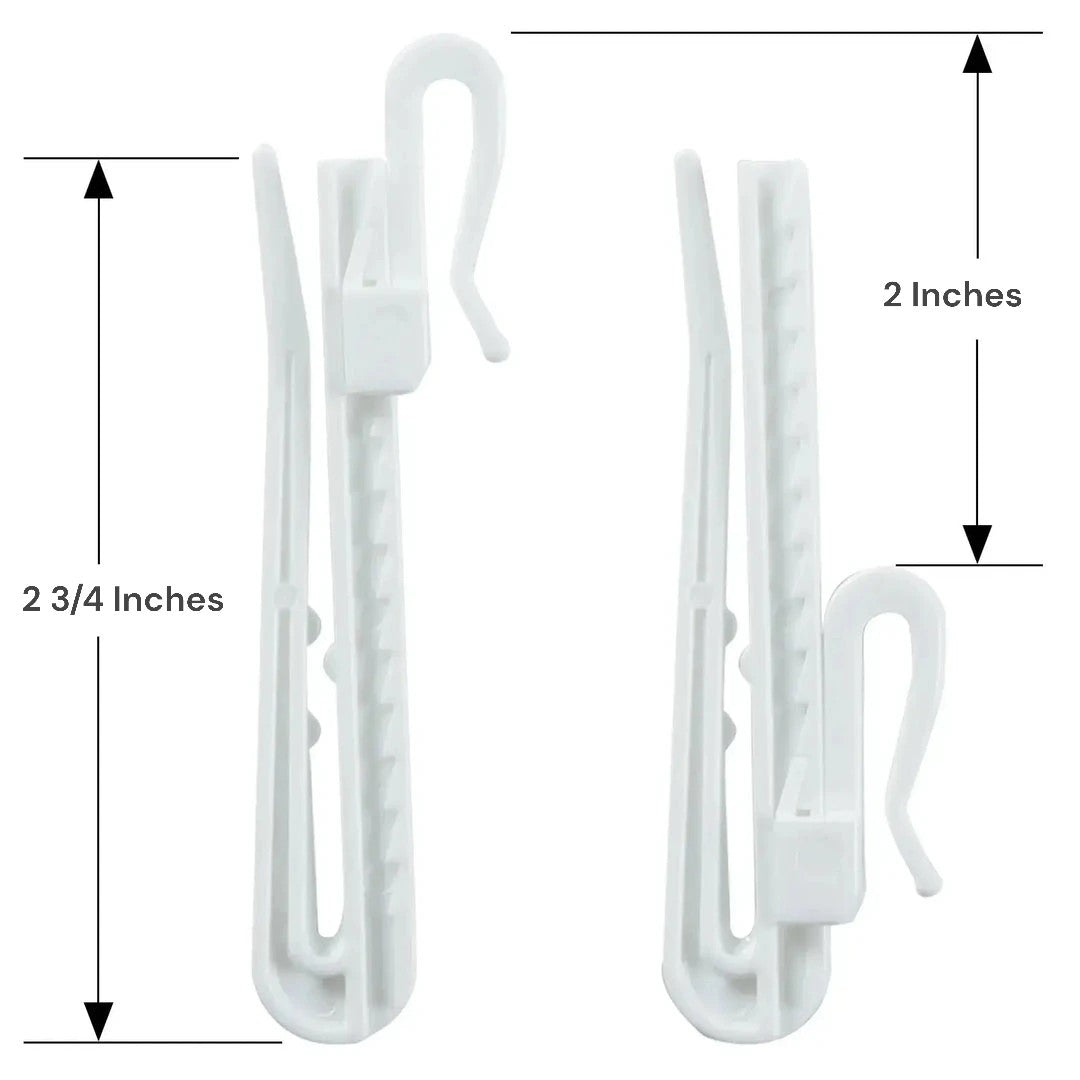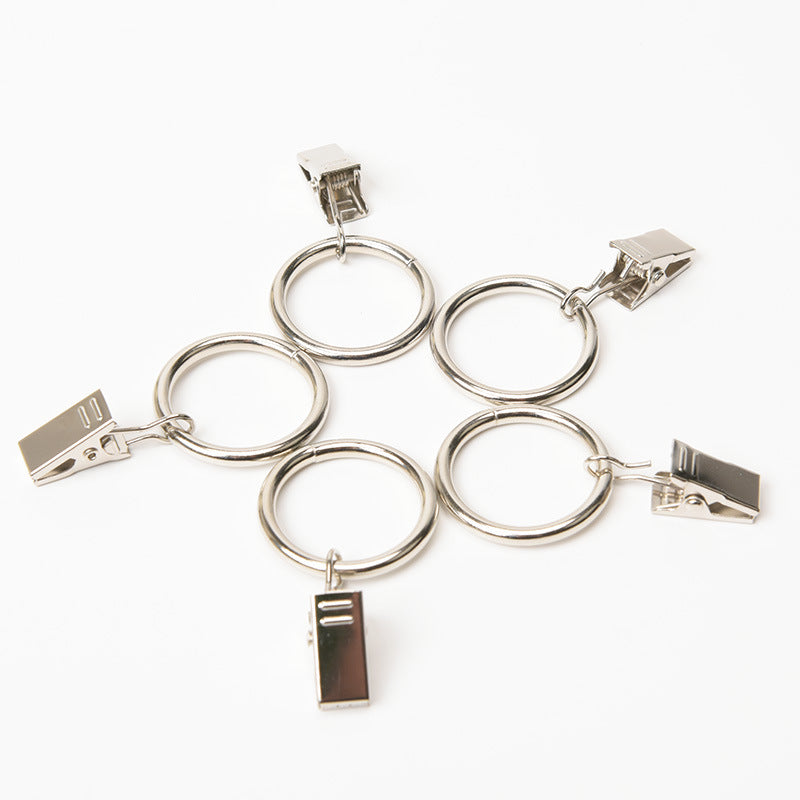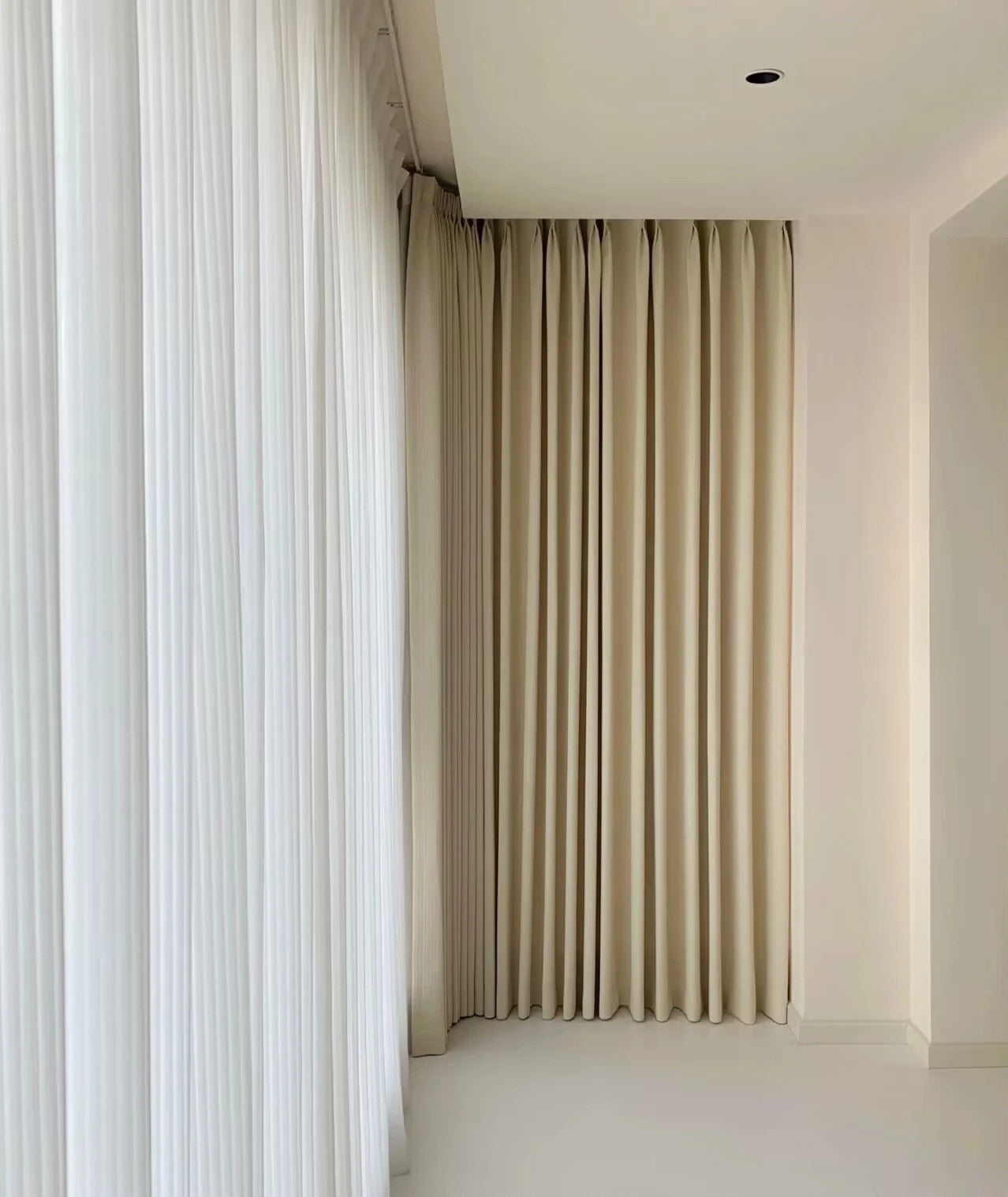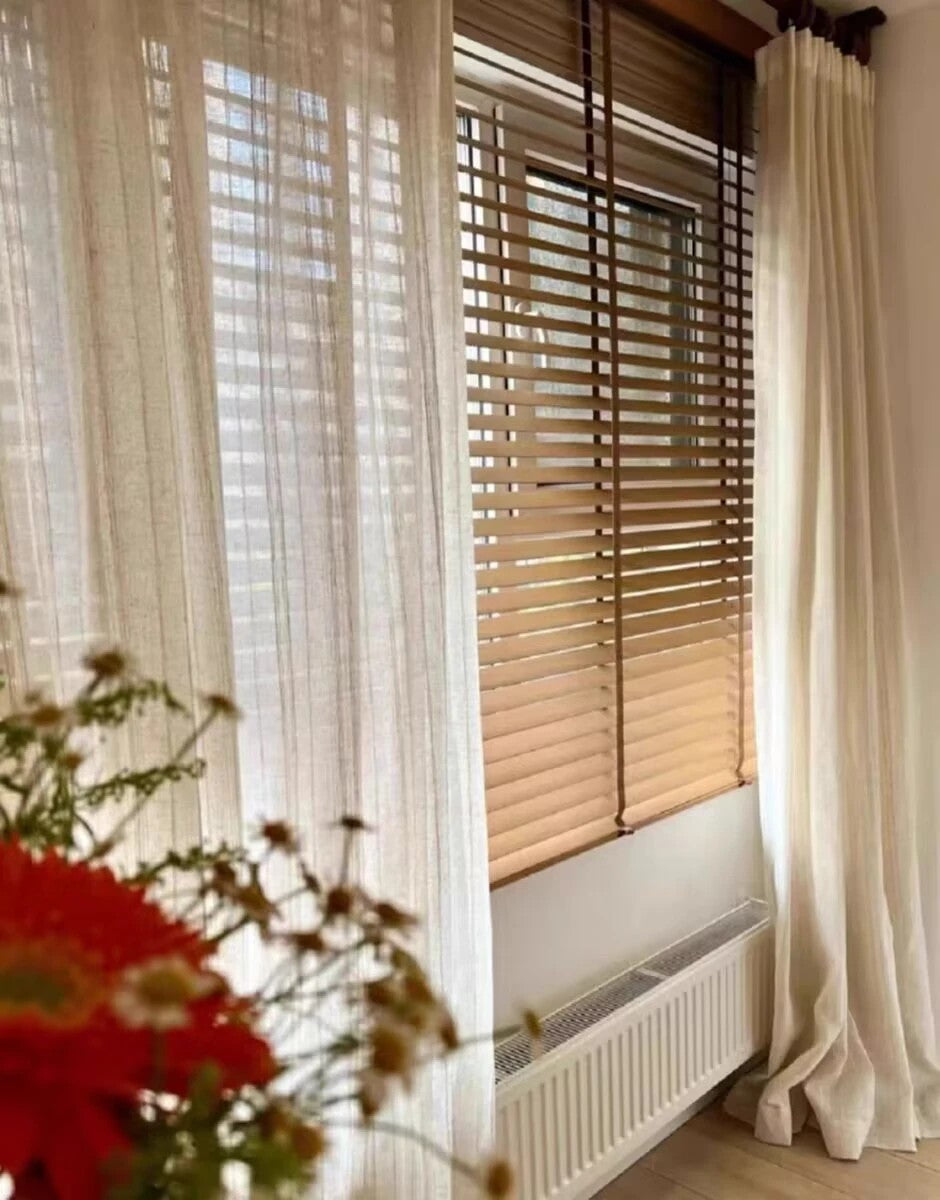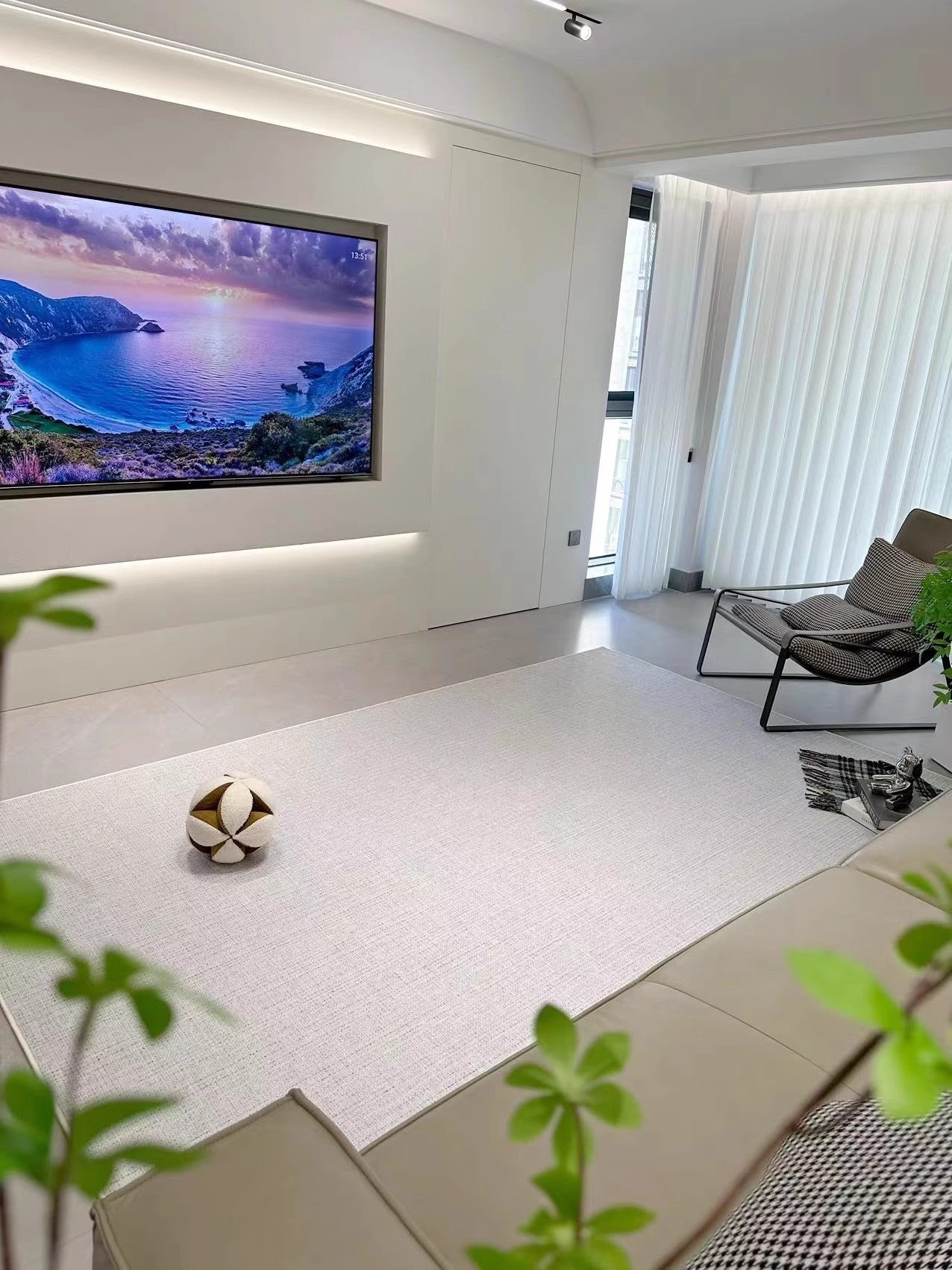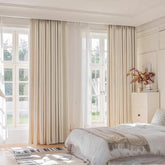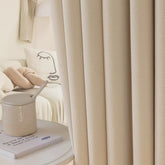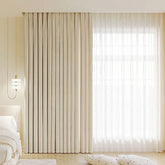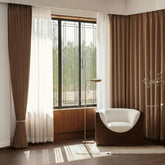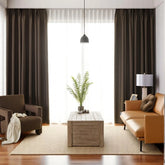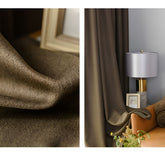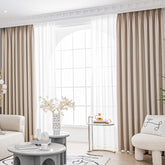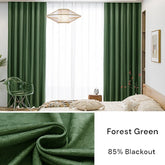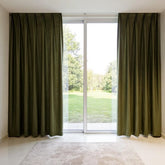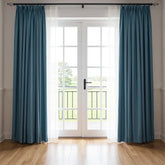Can Curtains Block Sound?
Curtains are a popular window treatment choice, but can they actually block sound?
Many homeowners are seeking effective ways to reduce noise pollution in their homes. If you're wondering whether curtains can help in soundproofing, you've come to the right place. In this guide, we will explore the effectiveness of curtains in blocking sound and provide you with valuable information to make informed decisions.
When it comes to soundproofing, the thickness and material of curtains play a crucial role. Opt for thick, tightly woven curtains with a large surface area for maximum sound reduction. Additionally, blinds like cellular shades or Roman shades can also provide some sound insulation by trapping energy.
However, curtains generally outperform blinds in noise reduction. Aim for dense, heavy curtains that cover the window from ceiling to floor, as they effectively absorb energy and limit the amount of sound that enters or leaves a room.
While blackout curtains, made from thick, heavy fabrics, can offer some sound insulation, their effectiveness may vary. For optimal soundproofing and light-blocking results, consider blackout curtains made from thick, heavy fabrics. These curtains are specially designed to absorb sound energy, providing a peaceful environment in your home.
It's worth noting that insulated and thick curtains not only offer soundproofing benefits but also help with thermal insulation. They can retain heat during winter and keep it out during summer, making your home more energy-efficient.
If your favorite curtain material is thin, you can enhance its soundproofing capabilities by adding backing materials. This will not only improve sound reduction but also provide additional thermal insulation.
To enhance your understanding of soundproofing curtains, continue reading our detailed guide. We will discuss the factors influencing sound blocking with curtains and provide a conclusion on whether curtains can serve as an effective soundproofing solution.
- Curtains can reduce noise pollution and absorb sound energy
- Thick, tightly woven curtains with a large surface area are more effective at soundproofing
- Blinds like cellular shades or Roman shades can provide some sound reduction
- For maximum effectiveness, choose dense, heavy curtains that cover the window from ceiling to floor
- Consider specially designed soundproof curtains for optimal sound reduction
Factors Influencing Sound Blocking with Curtains
The effectiveness of curtains in blocking sound can vary based on several factors. When choosing curtains for sound insulation, it is essential to consider curtain thickness, material, coverage, and additional soundproofing measures. Let's explore these factors in detail:
Curtain Thickness:
The thickness of the curtain plays a significant role in its ability to block sound. Thick, tightly woven curtains with a large surface area are more effective at soundproofing compared to thin curtains. The dense fabric like Velvet helps absorb sound energy, reducing noise pollution in your home. For optimal soundproofing results, consider using blackout curtains or specially made soundproofing curtains.
Curtain Material:
The material of the curtain also affects its sound-blocking capabilities. Dense, heavy fabrics, such as velvet or wool, provide better sound insulation compared to lighter materials like silk or sheer curtains. Additionally, pleated curtains with increased surface area can further enhance soundproofing.
Curtain Coverage:
The coverage of the curtain is crucial in preventing sound leakage. To minimize sound transfer through windows, ensure that the curtains cover the entire window and extend from ceiling to floor. This will help create a barrier that limits the amount of sound that enters or leaves the room.
While curtains alone can provide some relief from noise, combining them with blinds can further enhance sound reduction. Cellular shades or Roman shades, when used in conjunction with curtains, trap sound energy and contribute to reducing noise pollution in your home.
To summarize, when selecting curtains for soundproofing, opt for thick, tightly woven fabrics with full coverage. Consider using blackout curtains or specially designed soundproof curtains for maximum effectiveness. Additionally, combining curtains with blinds can provide an extra layer of sound reduction. Remember, every little improvement can make a difference in creating a quieter and more peaceful environment in your home.
| Factors | Effectiveness |
|---|---|
| Curtain Thickness | Thicker curtains provide better sound insulation |
| Curtain Material | Dense, heavy fabrics like velvet or wool are more effective |
| Curtain Coverage | Curtains should cover the entire window and extend from ceiling to floor |
| Combination with Blinds | Using blinds with curtains can enhance sound reduction |
By considering these factors and investing in the right curtains, you can create a more peaceful and noise-free environment in your home.
Conclusion: Curtains as a Soundproofing Solution
In conclusion, curtains can be a practical solution for reducing noise pollution in your home. The thickness and material of the curtains are crucial factors in their effectiveness at blocking sound.
Dense, heavy curtains that cover the entire window from ceiling to floor are recommended for maximum soundproofing benefits. Blackout curtains made from thick, heavy fabrics can also provide some sound insulation, but Sleepout curtains are specifically designed for a soundproofing and thermal insulation combination.
In addition to their soundproofing benefits, insulated and thick curtains can also help with thermal insulation, reducing the need for excessive heating or cooling. Pleated curtains with their increased surface area are particularly effective for soundproofing purposes.
If you have a favorite curtain material that is thin, you can enhance its soundproofing and thermal insulation properties by adding backing materials. At Dolcewe, we offer a wide range of lined curtains specifically designed for soundproofing and thermal insulation, making them a worthwhile investment for any homeowner looking to improve their living space and create a peaceful and comfortable environment.
FAQ
Q: Can curtains block sound?
A: Yes, curtains can reduce noise pollution and absorb sound energy.
Q: What types of curtains are more effective for soundproofing?
A: Thick, tightly woven curtains with a large surface area are more effective at soundproofing. Pleated curtains with increased surface area are also beneficial.
Q: Can blinds provide sound reduction?
A: Yes, blinds such as cellular shades or Roman shades can provide some sound reduction by trapping energy. However, curtains are generally more effective than blinds for noise reduction.
Q: How should curtains be installed for maximum soundproofing?
A: For maximum effectiveness, use dense, heavy curtains that cover the window from ceiling to floor.
Q: Are blackout curtains effective for sound insulation?
A: Blackout curtains, made from thick, heavy fabrics, can provide some sound insulation, but their effectiveness may vary. For optimal soundproofing and light-blocking results, choose Sleepout curtains made from thick, heavy fabrics.
Q: Can thin curtains be adapted for soundproofing?
A: Yes, if a favorite curtain material is thin, it can be adapted by adding backing materials for soundproofing and thermal insulation.
Q: Where can I find soundproofing curtains?
A: Online retailers like Dolcewe offer a wide range of lined curtains suitable for soundproofing and thermal insulation.



